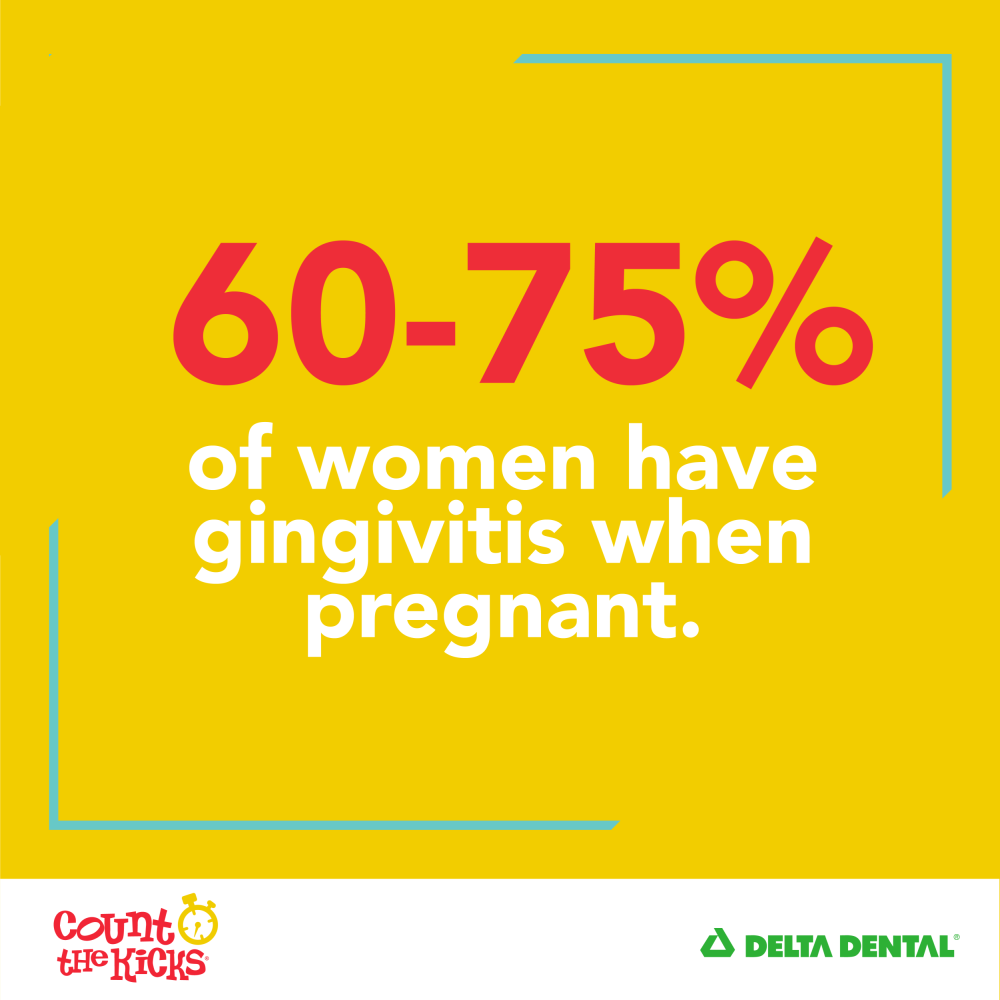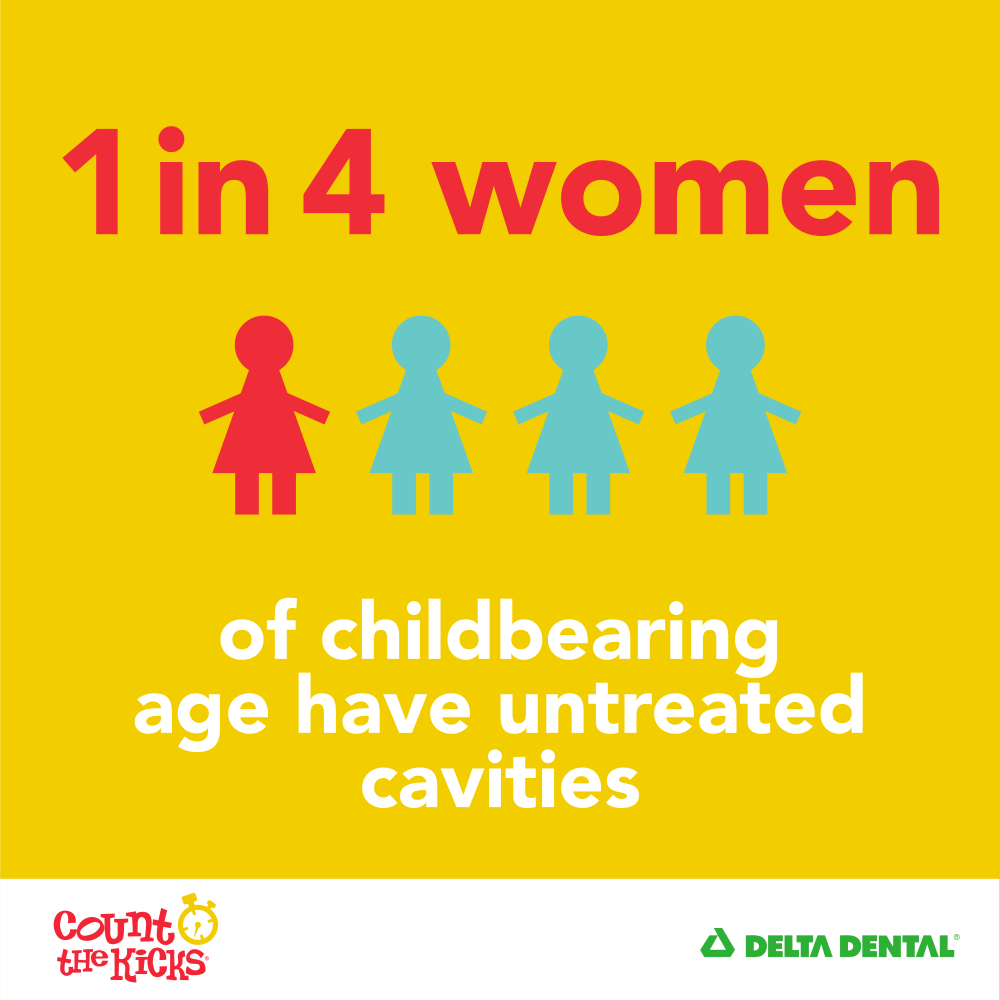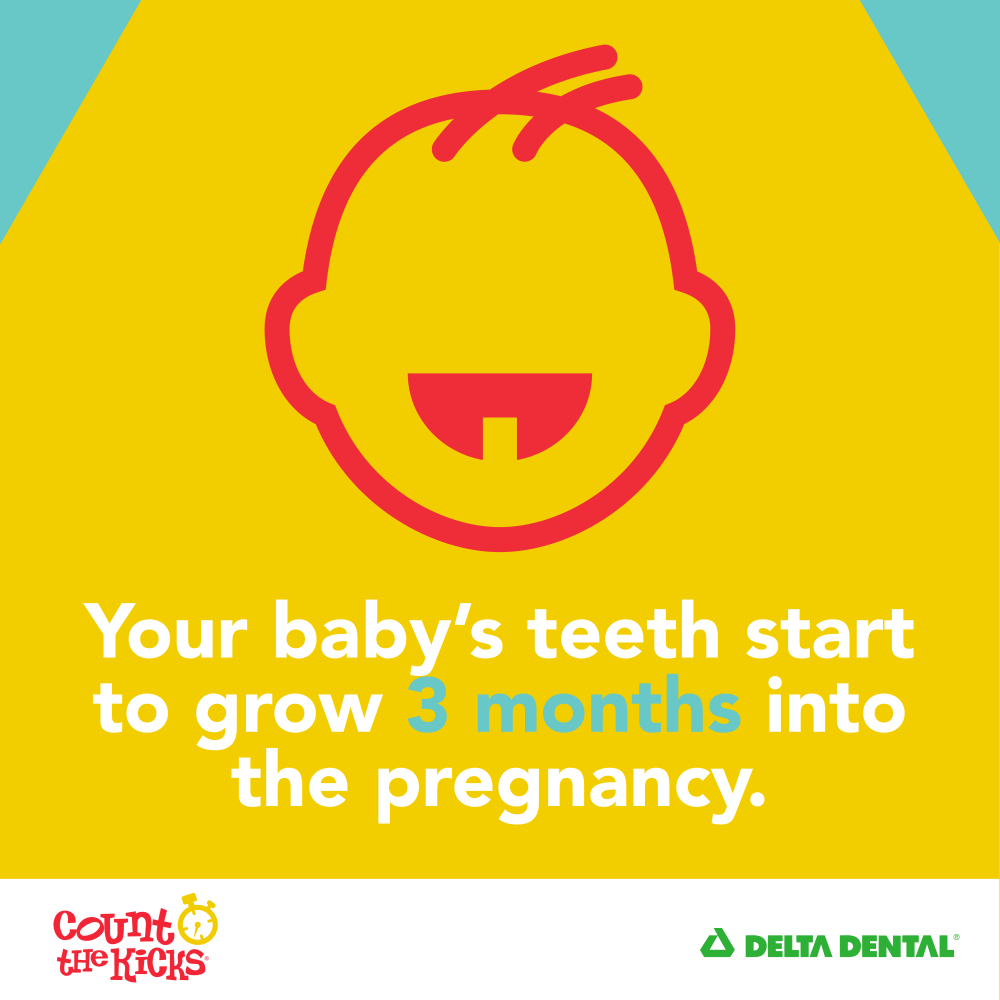Evidence shows that receiving dental care during pregnancy can improve the health of both baby and mother by reducing the risk of gum disease and poor birth outcomes. Your body goes through a lot of changes during pregnancy – including changes to your mouth. Making sure you are taking care of your oral health may not be at the top of your to-do list, but it is even more important when you are pregnant.
Some common changes that can impact your teeth include:
Hormonal Increases: Hormone changes can increase blood flow to your gum tissues, causing sensitivity, bleeding or swollen gums. This is known as pregnancy gingivitis, which has been linked to poor pregnancy outcomes, including pre-term birth and low birth weight. [Source]
Morning Sickness: If your morning sickness causes you to throw up, you may have more acid in your mouth. That acid can eat away at the top layer of your teeth (also known as enamel). Be sure to rinse your mouth afterwards to help wash away the acid.
Cavities: With pregnancy you may experience cravings for specific foods. If you crave sugary snacks, you may be at risk of getting cavities. Women who have a lot of cavity-causing bacteria during pregnancy and after delivery could pass the bacteria from their mouth to the mouth of their baby. [Source]
Healthy Habits in Pregnancy
Learn more about why it’s important for expectant parents to have great oral health routines and Count the Kicks daily in the third trimester of pregnancy.





